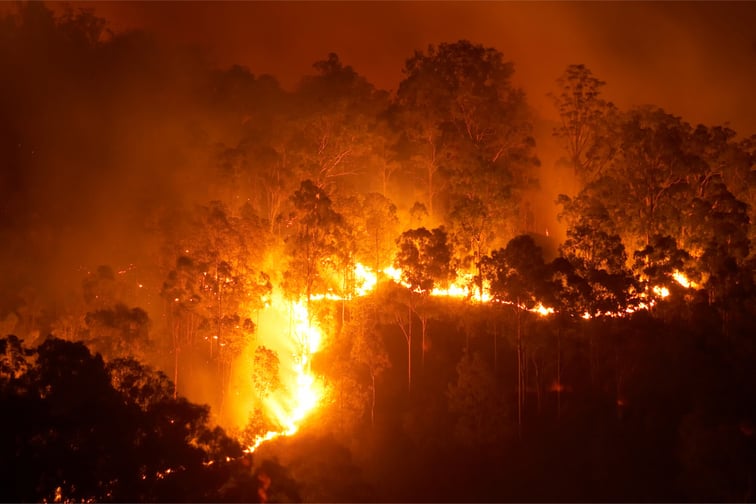

Potential insured losses from wildfires are growing even as the frequency of fires decreases, according to the Insurance Information Institute (Triple-I).
Potential insured losses from wildfires are on the upswing because nearly 99 million Americans live in the wildland-urban interface (WUI), Triple-I reported.
“Insured losses are influenced by the extent of development in the wildland-urban interface,” said Dale Porfilio, chief insurance officer at Triple-I. “Developers, home buyers, lenders and other stakeholders must seek to understand and respond appropriately to the relationship between a property’s WUI proximity and its risks.”
The WUI is a transitional zone between developed land and unoccupied areas, where human activity and structures are mingled with wildland. According to a 2022 report from the US Fire Administration, more than 46 million homes – with an estimated total value of $1.3 trillion – are located within the WUI.
Another report, published in March by the Swiss Re Institute, noted that “another longer-term trend is the doubling of the share of natural catastrophe insured losses from wildfires over the last 30 years.”
Triple-I said that the correlation between wildfire risk and geography highlights the need for scrupulous data gathering and analysis when insurers underwrite and price coverage.
“Even within states that are heavily exposed to wildfire risk, potentially profitable insurance opportunities exist,” Porfilio said. “The use of sophisticated modeling tools is critical to sound, accurate underwriting.”
The August wildfires in Hawaii were among the deadliest in the nation’s history. Even so, this year the US is on track to have the lowest number of wildfires since 2014, Triple-I reported. The total number of wildfires in the US has been on a generally downward trajectory over the past decade, with the exceptions of 2017 and 2018. In those years, the nation’s three costliest wildfires, in terms of insured losses, occurred in California, Triple-I reported.
Since then, state and local authorities have made large investments to mitigate the human causes of wildfires, Triple-I said. In addition, the federal Infrastructure Investment and Jobs Act of 2021 included billions of dollars for wildfire risk reduction, improved responsiveness to fires, and homeowner investment in risk mitigation.
The private sector has also stepped up to help reduce wildfire risk, Triple-I said. For example, last year the Insurance Institute of Business & Home Safety launched its Wildfire Prepared Home designation to help California homeowners protect their property from wildfires.
Have something to say about this story? Let us know in the comments below.
